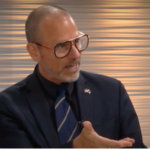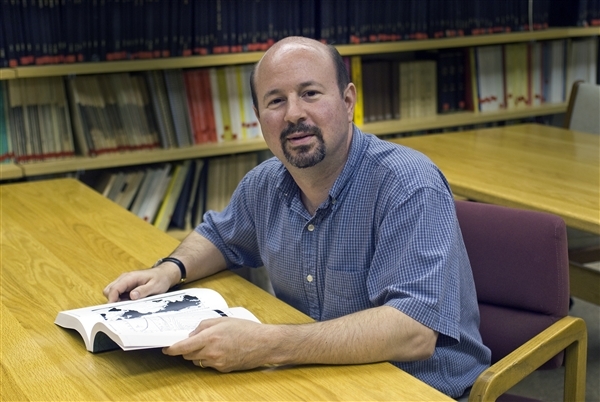The United Nations Intergovernmental Panel on Climate Change (IPCC) is in damage control mode once again after an anonymous source released more than 5,000 emails revealing misconduct and fraud among prominent scientists at the heart of the assertion that humans are causing a global warming crisis. The release of the emails, known as Climategate 2, came nearly two years to the day after a similar publication of emails initiated the infamous Climategate scandal.
The Climategate 2 story caught fire in the news media after Heartland Institute Senior Fellow James M. Taylor wrote an article for Forbes.com presenting several examples of scientific misconduct within the emails and explaining how the misdeeds undermined IPCC’s scientific credibility. Meteorologist Anthony Watts and other scientists posted many of the offending emails on their personal Web sites. The Internet site foia2011.org pulled the Climategate 1 and Climategate 2 emails together in a searchable, user-friendly database.
According to Taylor’s Forbes.com article, “Three themes are emerging from the newly released emails: (1) prominent scientists central to the global warming debate are taking measures to conceal rather than disseminate underlying data and discussions; (2) these scientists view global warming as a political ’cause’ rather than a balanced scientific inquiry and (3) many of these scientists frankly admit to each other that much of the science is weak and dependent on deliberate manipulation of facts and data.”
Hiding Evidence
The emails revealed IPCC scientist Phil Jones coaching other Climategate figures on how to evade freedom of information laws and keep their research and communications hidden from third-party analysis.
“I’ve been told that IPCC is above national FOI [Freedom of Information] Acts. One way to cover yourself and all those working in AR5 would be to delete all emails at the end of the process,” wrote Jones in a Climategte 2 email.
“Any work we have done in the past is done on the back of the research grants we get—and has to be well hidden,” Jones added in another email. “I’ve discussed this with the main funder (U.S. Dept of Energy) in the past and they are happy about not releasing the original station data.”
Lack of Objectivity Revealed
Other emails revealed Climategate scientists assumed a predetermined outcome and then worked to cherry-pick information to fit the predetermined narrative.
“The trick may be to decide on the main message and use that to guid[e] what’s included and what is left out” of IPCC reports, wrote IPCC coordinating lead author Jonathan Overpeck.
There is a “Need to convince readers that there really has been an increase in knowledge—more evidence. What is it?” asks Climategate scientist Jonathan Overpeck in still another email.
Similarly, the Climategate emails show scientist Michael Mann employing underhanded methods to discredit scientists who question the notion of a global warming crisis.
“I have been talking w/ folks in the states about finding an investigative journalist to investigate and expose” skeptical scientist Steve McIntyre, Mann writes.
Scientific Doubts
The emails reveal substantial doubt of a global warming crisis among even the most prominent proponents of the claim.
Rising temperatures throughout the tropical troposphere are a key expected fingerprint of human-induced global warming, yet the fingerprint appears to be missing, Climategate scientists acknowledge.
“Observations do not show rising temperatures throughout the tropical troposphere unless you accept one single study and approach and discount a wealth of others. This is just downright dangerous. We need to communicate the uncertainty and be honest. Phil, hopefully we can find time to discuss these further if necessary,” writes prominent global warming believer Peter Thorne of the UK Met Office.
“I also think the science is being manipulated to put a political spin on it which for all our sakes might not be too clever in the long run,” Thorne adds.
“I am increasingly unconvinced by the majority of climate impact studies—including some of those I am involved in—and feel we are not really giving the right message to our audiences,” admits British scientist and prominent global warming advocate Mike Hulme in another Climategate 2 email.
U.S. government scientist Tom Wigley points out flaws in Mann’s research.
“Mike, The Figure you sent is very deceptive … there have been a number of dishonest presentations of model results by individual authors and by IPCC,” Wigley observes.
“How should we deal with flaws inside the climate community? I think, that ‘our’ reaction on the errors found in Mike Mann’s work were not especially honest,” agrees British climate researcher Douglas Maraun.
Improper Motives Revealed
“Climategate 2 reinforces what we knew—the climate alarmists are not interested in facts or science. They are running an agenda that aims at world government funded by taxes on Western industry, particularly extractive industry, particularly coal and oil,” said geologist Viv Forbes, chairman of the Carbon Sense Coalition.
“The world has always had its rascals, intent on attaching themselves to ‘other people’s money’ and spending it to perpetuate their system,” said economist Ronald Manners, chairman of the Mannkal Economic Education Foundation. “Climategate 2’s revelations provide just another example of this.”
“Climategate 2 confirms that the global warming scare has been manufactured by a small group of scientists who control the key chapters in the UN IPCC’s assessment reports,” added Competitive Enterprise Institute senior fellow Myron Ebell.
Context Reinforces Misconduct
Australian journalist Joanne Nova says the context of the Climategate 2 emails clarifies the extent of the misconduct by Climategate figures.
“This time,” said Nova, “we get all the context, and we can see just how widespread the uncertainties were behind the scenes.”
“These emails reaffirm, and in more striking detail, the politicization of science, the perversion of peer review, the corruption of the IPCC, and efforts to professionally ‘kneecap’ those who dared criticize their work,” said Competitive Enterprise Institute Senior Fellow Christopher Horner.
D. Brady Nelson ([email protected]) is a Milwaukee-based economist.





